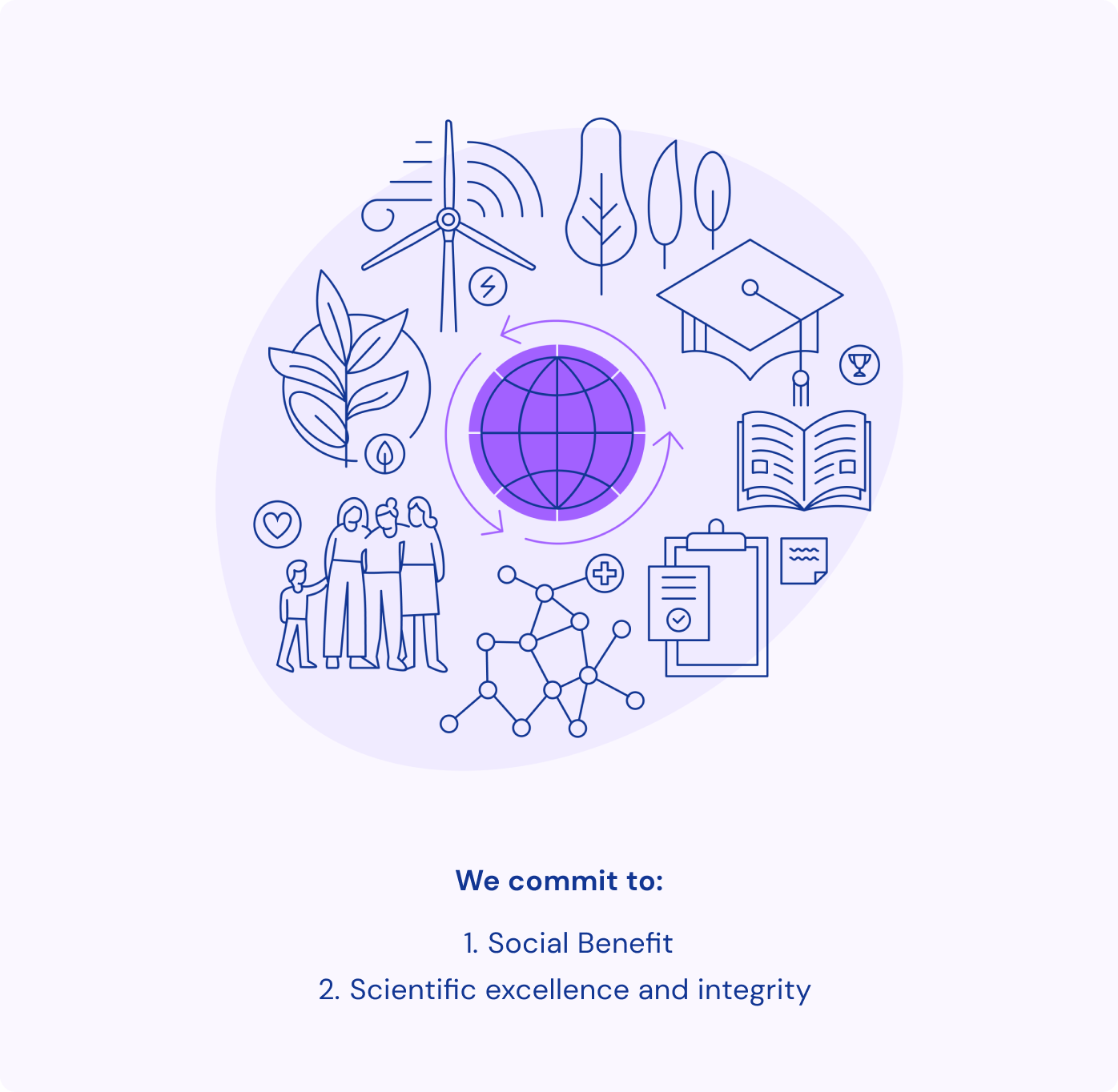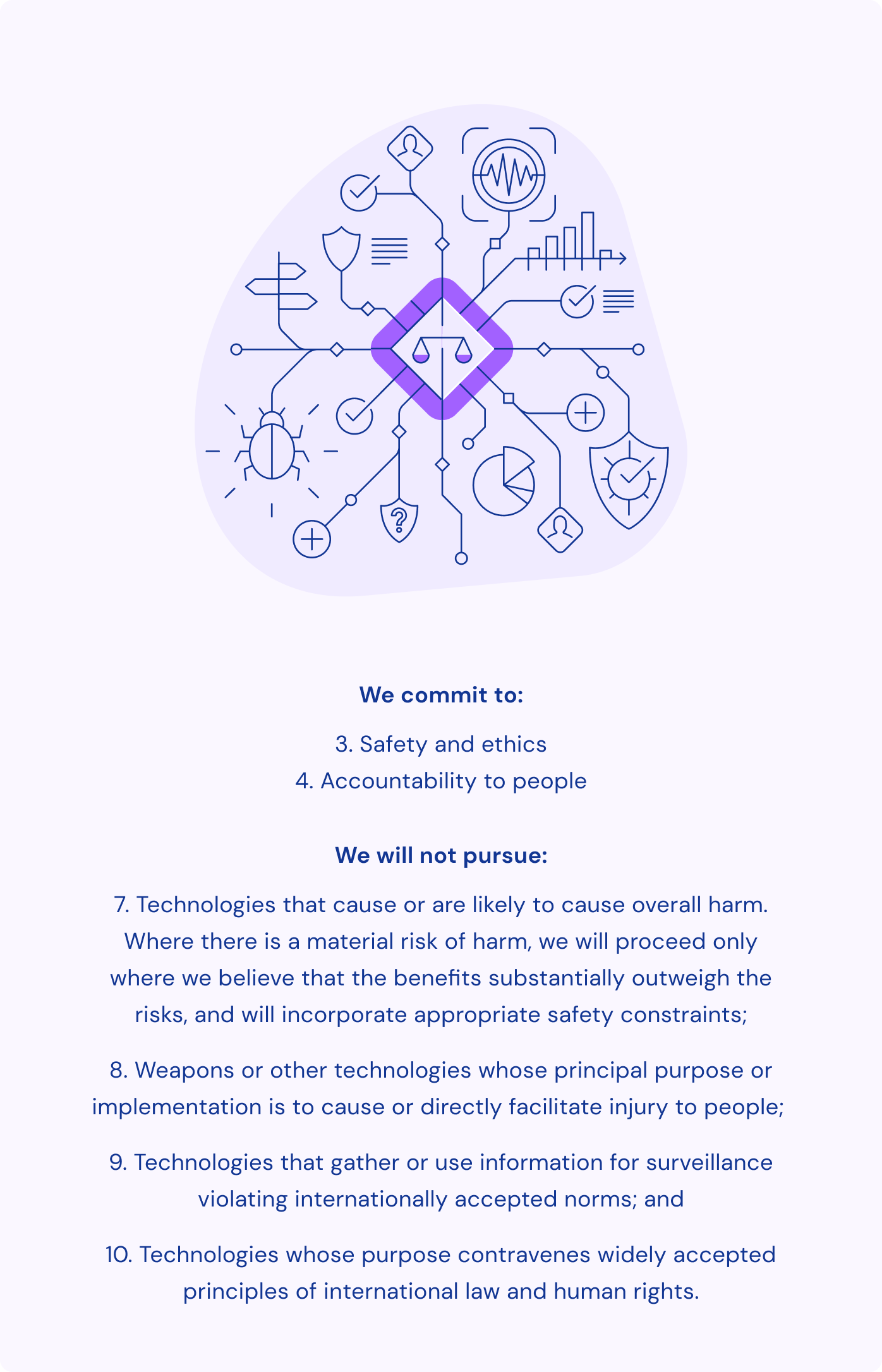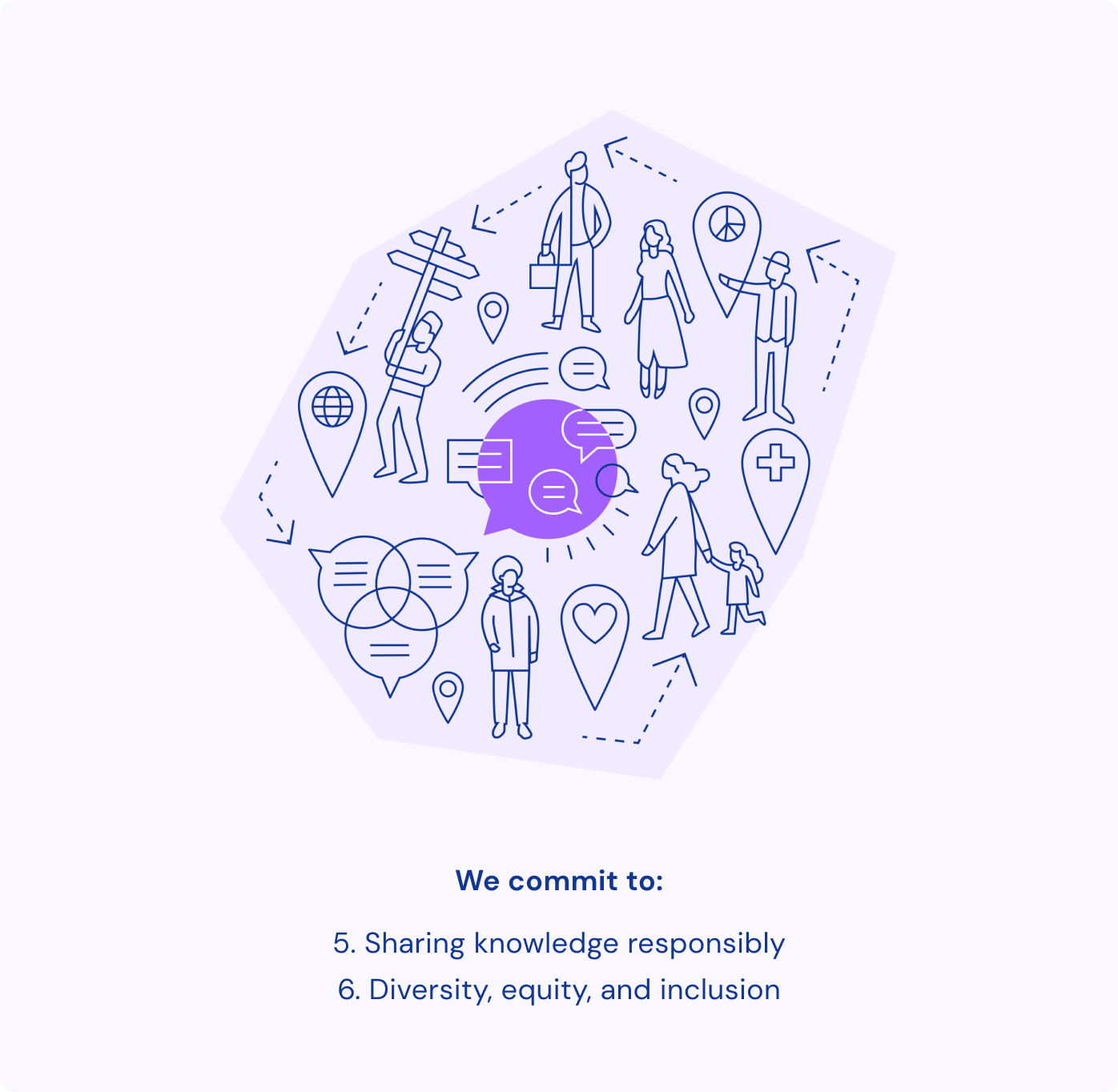
Reflections and lessons on sharing one of our greatest accomplishments with the world
Putting our mission of solving intelligence to advance science and benefit humanity into action comes with critical responsibilities. To help create a positive impact for society, we must proactively assess the ethical implications of our research and its applications in a rigorous and rigorous manner. We also know that every new technology has the potential to harm, and we take both long- and short-term risks seriously. We’ve built our foundation on leading responsibly from the very beginning – with a particular focus on responsible governance, research and impact.
This starts with establishing clear principles that help realize the benefits of artificial intelligence (AI), while mitigating its risks and potential negative outcomes. Leading responsibly is a team effort, which is why we have contributed to many of the AI Community Standards, such as those developed by Google, the Partnership on Artificial Intelligence, and the Organization for Economic Co-operation and Development (OECD).
Our operating principles have come to define our commitment to prioritizing broad utility, as well as areas of research and applications that we refuse to pursue. These principles have been at the heart of our decision-making since DeepMind was founded, and continue to be refined as the AI landscape changes and grows. They are designed for our role as a research-driven science company and align with Google’s AI principles.

From principles to practice
Written principles are only part of the puzzle – how they are put into practice is key. For complex research at the frontiers of AI, this brings significant challenges: How can researchers anticipate the potential benefits and harms that may occur in the distant future? How can we develop better moral insight from a wide range of viewpoints? And what would it take to explore challenging questions alongside scientific advances in real time to prevent negative outcomes?
We’ve spent many years advancing our skills and processes for responsible governance, research, and impact across DeepMind, from creating internal toolkits and publishing papers on sociotechnical issues to supporting efforts to increase deliberation and insight across the AI field. To help empower DeepMind teams to lead responsibly and protect from harm, the Institutional Interdisciplinary Review Committee (IRC) meets bi-weekly to evaluate DeepMind projects, papers, and collaborations.
Leading responsibly is a team muscle, and every project is an opportunity to strengthen our combined skills and understanding. We’ve carefully designed our review process to include rotating experts from a wide range of disciplines, with machine learning researchers, ethicists, and safety experts sitting alongside engineers, security experts, policy specialists, and more. These diverse voices regularly identify ways to extend the benefits of our technologies, suggest areas of research and applications to change or slow down, and highlight projects that require more external consulting.
While we’ve made a lot of progress, many aspects of this lie in uncharted territory. We won’t get it right every time and we are committed to continuous learning and iteration. We hope that sharing our current process will be useful to others working on responsible AI, and we encourage feedback as we continue to learn, which is why we’ve broken down ideas and lessons from one of our most complex and rewarding projects: AlphaFold. Our AlphaFold AI system solved the 50-year-old challenge of protein structure prediction – and we’re excited to see scientists using it to accelerate progress in areas such as sustainability, food security, drug discovery and essential human biology since it was released to the wider community last year.

Focus on protein structure prediction
Our team of machine learning researchers, biologists, and engineers have long seen the problem of protein folding as an exciting and unique opportunity for AI learning systems to make a big impact. In this field, there are standard metrics for success or failure, and clear limits to what an AI system needs to do to assist scientists in their work — predicting the three-dimensional structure of a protein. As with many biological systems, protein folding is too complex for anyone to write the rules for how it works. But an AI system might be able to learn these rules on its own.
Another important factor was the biennial assessment, known as CASP (Critical Assessment of Protein Structure Prediction), founded by Professor John Moult and Professor Krzysztof Fidelis. With each pool, CASP provides an exceptionally robust assessment of progress, requiring participants to anticipate structures only recently discovered by experiments. The results are a great catalyst for ambitious research and scientific excellence.

Understanding practical opportunities and risks
As we prepared for the CASP evaluation in 2020, we realized that AlphaFold showed great potential to solve the challenge at hand. We spent significant time and effort analyzing the practical implications, asking: How can AlphaFold accelerate biological research and applications? What could be the unintended consequences? And how can we share our progress responsibly?
This presented a wide range of opportunities and risks to consider, many of which were in areas where we did not necessarily have solid expertise. So we sought external input from more than 30 field leaders across biology research, biosecurity, bioethics, human rights, and more, emphasizing diversity of experience and background.
Several consistent themes emerged during these discussions:
- Balance between broad benefit and risk of harm. We started with a cautious mindset about the risks of accidental or intentional harm, including how AlphaFold interacts with both future developments and current technologies. From our discussions with outside experts, it became clear that AlphaFold would not make it easy to damage proteins, given the many practical barriers to doing so – but future developments must be carefully evaluated. Many experts have argued strongly that AlphaFold, as a pertinent advance in many areas of scientific research, would have the greatest benefit with free and widespread access.
- Accurate trust measures are essential for responsible use. Experimental biologists have demonstrated how important it is to understand and share well-optimized, usable confidence measures for each part of AlphaFold’s predictions. By indicating which of AlphaFold’s predictions are likely to be accurate, users can estimate when they can trust the prediction and use it in their work – and when they should use alternative methods in their research. We initially considered deleting predictions for which AlphaFold has low confidence or high predictive uncertainty, but the external experts we consulted established why it was particularly important to retain these predictions in our release, and advised us on the most informative and transparent way to deliver this. Information.
- Fair interest could mean extra support for underfunded fields. We’ve had many discussions about how to avoid unintentionally increasing inequalities within the scientific community. For example, so-called neglected tropical diseases, which disproportionately affect poorer parts of the world, often receive less research funding than they should. We are strongly encouraged to prioritize hands-on support and to look proactively to partnering with groups working in these areas.

Establish our release approach
Based on the above input, the IRC has endorsed a range of AlphaFold versions to meet multiple needs, including:
- peer-reviewed publications and open source code, Including two papers in Nature, accompanied by open source code, to enable researchers to more easily implement and improve AlphaFold. Soon after, we added Google Colab allowing anyone to enter a protein sequence and receive a predicted construct, as an alternative to running the open source code themselves.
- A major release of protein structure predictions In partnership with EMBL-EBI (European Bioinformatics Institute EMBL), an established community leader. As a public institution, EMBL-EBI enables anyone to search for protein structure predictions as easily as a Google search. The initial release included predicted shapes for every protein in the human body, and our latest update included the predicted structures for nearly all indexed proteins known to science. This amounts to more than 200 million structures, all freely available on the EMBL-EBI website with open access licenses, accompanied by support resources, such as webinars on the interpretation of these structures.
- build 3D visualizations in the database, With the notable marking of high confidence and low confidence areas of prediction, and in general, we aim to be as clear as possible about AlphaFold’s strengths and limitations in our documentation. We also designed the database to be as accessible as possible, for example, taking into account the needs of people with color vision deficiency.
- Forge deeper partnerships with research groups working in underfunded areas, Such as neglected diseases and topics critical to global health. This includes DNDi (Drugs for Neglected Diseases Initiative), which is advancing research on Chagas disease and leishmaniasis, and the Center for Enzyme Innovation, which is developing plastic-eating enzymes to help reduce plastic waste in the environment. Our growing public engagement teams continue to work on these partnerships to support more collaborations in the future.
How do we build on this business
Since its initial release, hundreds of thousands of people from more than 190 countries have visited the AlphaFold protein structure database and used AlphaFold’s open source code since its launch. We’ve been honored to hear about the ways AlphaFold’s predictions have accelerated important scientific efforts and are working to tell some of those stories through our Uncovered project. To date, we are not aware of any abuse or harm related to AlphaFold, although we continue to pay close attention to this.
While AlphaFold was more complex than most DeepMind research projects, we are taking elements of what we’ve learned and incorporating them into other versions.
We build on this business by:
- Increased range of input from external experts At each stage of the process, explore mechanisms for broader participation ethics.
- Expanding our understanding of artificial intelligence in biology Overall, beyond any individual project or hack, to develop a stronger view of opportunities and risks over time.
- Finding ways to expand our partnerships With groups in fields not served by existing structures.
Just like our research, this is a continuous learning process. Developing AI for widespread benefit is a societal effort that extends far beyond DeepMind.
We do our best to keep in mind how much hard work remains to be done in partnership with others – and how we responsibly move forward.
